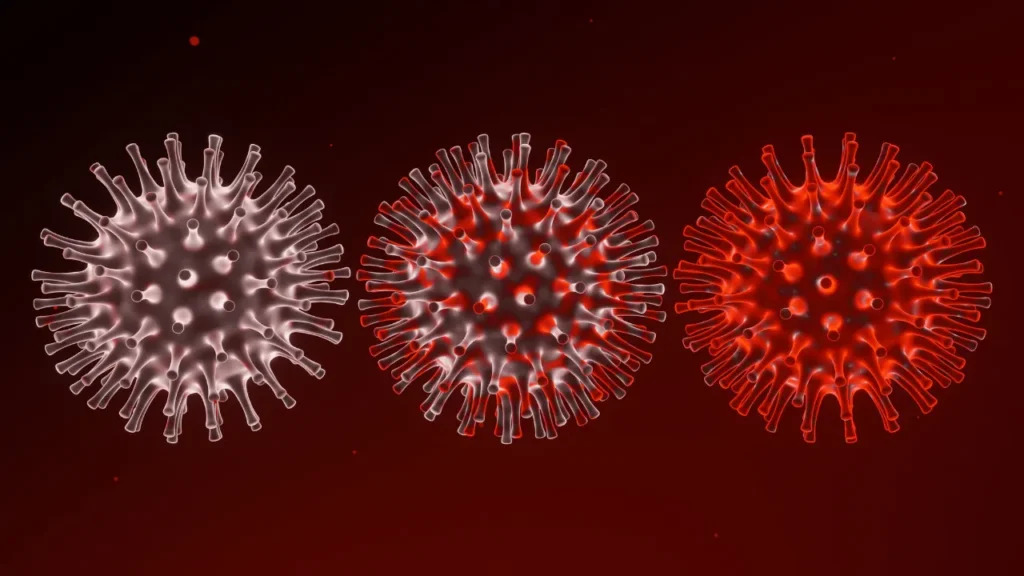The perennial climbing plant known as black bryony (Tamus communis), which is native to Europe and some regions of North Africa and Western Asia, has drawn interest recently due to its conceivable health advantages. The plant, a member of the Dioscoreaceae family, is well-known for its toxicity and has long been used in folk medicine to treat various illnesses, including inflammation, rheumatism, and skin disorders.
Despite its long-standing use, black bryony has received little attention from scientists, and knowledge of its chemistry, biological activity, and possible health advantages is still in its infancy. This page aims to thoroughly evaluate the available knowledge regarding the chemistry, health advantages, ideal dosage, adverse effects, possible drug interactions, and safe usage of black bryony as a nutritional supplement.
You May Also Like:
Should You Try CBD for Focus? Here Are the Facts.
Sunmed CBD vs. Partnered Process CBD: Finding the Best CBD for Sleep
BLACK BRYONY: Benefits, Dosage, Side Effects, Drug Interactions, And Other Important Information is an original (NootropicsPlanet) article.
Nature of Black Bryony:
The perennial climbing plant known as black bryony is a member of the Dioscoreaceae family. It can be found in Europe and Asia, like France, Germany, Italy, and Iran. The plant is distinguished by its broad leaves and summer-blooming clusters of tiny, greenish-yellow flowers. The portion of the plant that is utilized medicinally is the root. The tall, tuberous root is brownish-yellow in color. It contains a variety of potent substances, such as alkaloids, glycosides, and saponins.
Health Benefits of Black Bryony
Despite the scant research on black bryony, some promising health advantages have been found in the literature:
Analgesic and Anti-Inflammatory Qualities
Diosgenin and steroidal saponins are principally responsible for black bryony’s anti-inflammatory abilities. Studies on animal models have shown that these substances can lower edema, a typical sign of inflammation, and decrease the production of pro-inflammatory cytokines. Furthermore, studies have demonstrated that black bryony extracts can have analgesic effects, reducing pain in various experimental models.
Activity of Antioxidants
The presence of phenolic components enhances the antioxidant potential of black bryony. Reactive oxygen species (ROS), which can harm cells and play a role in the emergence of chronic illnesses, can be neutralized by these substances. Although more investigation is required to confirm black bryony’s antioxidant effects in people, the plant’s antioxidant properties may have potential health advantages by preventing or treating conditions linked to oxidative stress.
Effects against cancer
Certain studies have linked diosgenin, one of black bryony’s main bioactive components, to anticancer qualities. Diosgenin has been found to suppress angiogenesis, which is crucial for the development and metastasis of tumors, and to cause apoptosis (cell death). Although these results are tentative and mainly based on in vitro studies, they demonstrate black bryony’s potential as a source of novel anticancer compounds.

The Chemistry of Black Bryony
Saponins, steroidal glycosides, alkaloids, and phenolic compounds are only a few of the varied chemical components of black bryony. A class of natural compounds known as steroidal saponins consists of a steroid nucleus and one or more sugar moieties. These substances display a variety of biological behaviors, including anti-inflammatory, immunomodulatory, and anticancer effects.
Diosgenin is a steroidal sapogenin found in black bryony, and it has been shown to have several pharmacological properties, such as anti-inflammatory, anticancer, and anti-diabetic actions. Other bioactive components found in black bryony include phenolic compounds, which are well-known for their antioxidant qualities. These substances can shield cells against oxidative damage, which is thought to be a significant contributor to the pathogenesis of some chronic diseases, including cancer, cardiovascular disease, and neurological disorders.
Physiological Mechanisms of Action:
Its active components cause black bryony’s physiological effects and various health advantages. The following are some of the mechanisms of action:
- Anti-inflammatory properties: Black bryony has anti-inflammatory effects. This is because the root contains alkaloids and glycosides. These active substances have been demonstrated to inhibit the generation of pro-inflammatory cytokines, which are responsible for inflammation-related discomfort and swelling.
- Antioxidant properties: Black bryony’s antioxidant effects are due to the presence of several active substances, such as alkaloids and glycosides, which have been demonstrated to scavenge free radicals and guard against oxidative damage.
- Cardiovascular health: Black bryony’s capacity to decrease blood pressure and enhance circulation has a positive impact on cardiovascular health. Alkaloids, which have been demonstrated to relax blood vessels and promote blood flow, are known to be present in the root, which is why this is thought to be the case.
- Cognitive function: Black Bryony’s root alkaloids and glycosides benefit memory and mental weariness. These active substances have been shown to enhance brain function by increasing blood flow and oxygenation.


Optimal Dosage of Black Bryony
There is presently no recommended dosage for using black bryony as a dietary supplement because little research has been done on it. Furthermore, it is difficult to determine a safe and effective dosage due to the plant’s known toxicity. Additional studies and clinical trials are required to determine an effective dosing regimen for black bryony that maximizes its potential health benefits while minimizing its possible side effects.
Side Effects of Black Bryony
The presence of steroidal saponins and alkaloids is mostly to blame for black bryony’s poisonous qualities. The plant’s berries and tubers can produce gastrointestinal symptoms like nausea, vomiting, diarrhea, and abdominal discomfort when consumed. In extreme circumstances, ingesting might cause breathing difficulties, seizures, and even death. Applying black bryony topically can irritate, swell, and inflame the skin.
Given these dangers, it is essential to use black bryony as a dietary supplement with caution, especially in people with pre-existing medical issues or those who are taking other medications. Before adding black bryony to one’s supplement regimen, consulting with a healthcare provider is strongly advised.


Potential Substance Interactions with Black Bryony
Little is known about black bryony’s potential interactions with other substances because the herb hasn’t been the subject of extensive research. Due to its anti-inflammatory and antioxidant qualities, black bryony may interact with pharmaceuticals that have comparable effects, including nonsteroidal anti-inflammatory drugs (NSAIDs) or antioxidant supplements. Black bryony could potentially intensify the effects of these chemicals, raising the possibility of adverse side effects or lessening the intended therapeutic effects of the drugs.
Diosgenin may have anticancer characteristics; hence, black bryony may interact with chemotherapy drugs to increase or decrease their effectiveness. The potential interactions between black bryony and other medicines or supplements require further investigation.
Responsible Use of Black Bryony as a Nutritional Supplement
Exercise extreme caution when taking black bryony as a nutritional supplement because there is scant scientific evidence for its health benefits and because it is toxic. Consider the following recommendations for using black bryony sensibly:
Speak with a healthcare provider.
Consult a healthcare expert, such as a doctor or a qualified dietitian, before using black bryony as a nutritional supplement to determine its suitability for your unique health needs and any potential interactions with other drugs or supplements you may be taking.
Make use of a standardized extract
Choose a standardized black bryony extract from a reputable manufacturer to ensure a constant and secure dosage. Standardized extracts contain a continuous amount of the active chemicals, reducing the chance of exposure to potentially hazardous components.
Begin with the smallest dosage.
Given that there isn’t an ideal dosage for black bryony, it’s best to start slowly and pay attention to how your body reacts. If no side effects are noticed, the dosage can be gradually increased under the supervision of a healthcare practitioner.
Observe any side effects.
Monitor regularly for any adverse effects, including stomach issues, skin rashes, or unexpected reactions. Discontinue use and seek medical advice if side effects appear.
Black Bryony:
Conclusion
The health benefits of black bryony are primarily rooted in traditional uses, and there is limited scientific evidence to support these claims. Due to potential toxicity concerns associated with this plant, it is advisable to exercise caution and consult with a healthcare professional before considering the use of black bryony for medicinal purposes. Additionally, it’s essential to stay informed about any new research or developments in the field of herbal medicine, as knowledge and recommendations may evolve over time.


References:
- Diosgenin: A Plant-Derived Steroidal Sapogenin with Potential Health Benefits. Retrieved from: https://www.ncbi.nlm.nih.gov/pmc/articles/PMC6611423/
- Steroidal Saponins: Chemistry and Pharmacology. Retrieved from: https://academic.oup.com/jnci/article/55/3/555/912339
Important Note: The information contained in this article is for general informational purposes only, and should not be construed as health or medical advice, nor is it intended to diagnose, prevent, treat, or cure any disease or health condition. Before embarking on any diet, fitness regimen, or program of nutritional supplementation, it is advisable to consult your healthcare professional in order to determine its safety and probable efficacy in terms of your individual state of health.
Regarding Nutritional Supplements Or Other Non-Prescription Health Products: If any nutritional supplements or other non-prescription health products are mentioned in the foregoing article, any claims or statements made about them have not been evaluated by the U.S. Food and Drug Administration, and such nutritional supplements or other health products are not intended to diagnose, treat, cure, or prevent any disease.
